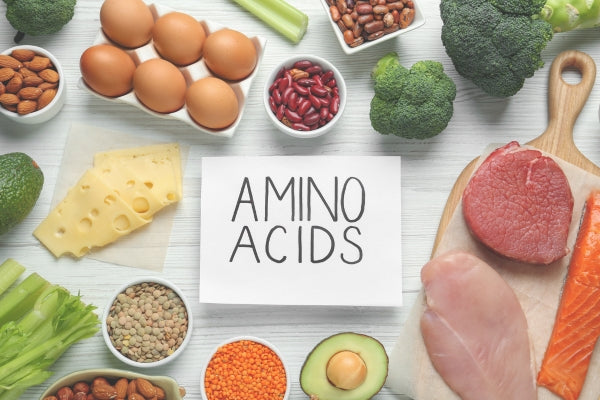

Amino acids are the building blocks of proteins and play critical roles in numerous physiological processes in the body. They are essential for growth, repair, and maintenance of tissues, and they serve as precursors for various biological molecules. This comprehensive guide will explore what amino acids are, their types, functions, dietary sources, health benefits, and more.
Amino acids are organic compounds composed of carbon, hydrogen, oxygen, and nitrogen. They contain an amino group (-NH2), a carboxyl group (-COOH), and a unique side chain (R group) that determines the specific characteristics of each amino acid. There are 20 different amino acids that combine in various sequences to form proteins, which are essential for virtually every biological function.
Amino acids can be classified into three main categories:
Essential amino acids cannot be synthesized by the body and must be obtained through the diet. There are nine essential amino acids:
Non-essential amino acids can be synthesized by the body, so they do not need to be obtained from food. Some non-essential amino acids include:
Conditional amino acids are usually non-essential but may become essential during times of stress, illness, or injury. These include:
Amino acids play various essential roles in the body, including:
Protein Synthesis: Amino acids are the building blocks of proteins, which are necessary for tissue growth, repair, and maintenance.
Hormone Production: Certain amino acids are precursors for hormones, such as insulin and growth hormone, that regulate metabolism and growth.
Enzyme Function: Many enzymes, which facilitate biochemical reactions, are proteins made up of amino acids.
Neurotransmitter Synthesis: Amino acids like tryptophan and tyrosine are precursors for neurotransmitters, which are crucial for communication between nerve cells.
Immune Function: Amino acids play a role in the production of antibodies, which help the body fight infections.
Energy Production: Amino acids can be converted into glucose through gluconeogenesis, providing energy when carbohydrates are scarce.
Nitrogen Balance: Amino acids are involved in nitrogen balance, essential for muscle maintenance and overall health.
Amino acids can be obtained from various dietary sources, particularly protein-rich foods. Some excellent sources of amino acids include:
Amino acids offer numerous health benefits, including:
Muscle Growth and Repair: Essential amino acids, particularly branched-chain amino acids (BCAAs), support muscle protein synthesis and recovery after exercise.
Weight Management: Amino acids can help regulate appetite and promote fat loss while preserving lean muscle mass.
Enhanced Exercise Performance: Supplementing with certain amino acids, like BCAAs and citrulline, may improve endurance and reduce muscle soreness.
Improved Immune Function: Amino acids like glutamine play a role in supporting immune health, particularly during periods of stress or illness.
Mood and Mental Health: Tryptophan, a precursor to serotonin, may help improve mood and reduce symptoms of depression and anxiety.
Wound Healing: Amino acids are crucial for tissue repair and healing, making them important for recovery after injury or surgery.
While most people can meet their amino acid needs through a balanced diet, some may consider supplements for specific health goals or conditions. Common forms of amino acid supplements include:
While amino acid supplementation can be beneficial, it is essential to approach it with caution:
Individual Needs: Amino acid requirements vary by age, sex, activity level, and health status. It's best to assess your dietary intake and consult a healthcare professional before starting supplements.
Potential Side Effects: High doses of certain amino acids can cause gastrointestinal issues, fatigue, or headaches. It's crucial to follow recommended dosages and consult a healthcare provider if you experience adverse effects.
Nutrient Imbalance: Excessive supplementation of specific amino acids may interfere with the absorption or utilization of others, potentially leading to imbalances.
Quality of Supplements: Choose high-quality supplements from reputable brands that undergo third-party testing for purity and potency.
Amino acids are essential for numerous biological functions, from protein synthesis to hormone production and immune function. By consuming a balanced diet rich in protein sources, you can ensure that you meet your amino acid needs. If you consider supplementation, consult a healthcare professional to determine the right approach for your individual needs. Understanding the role and importance of amino acids can help you support your overall health, enhance physical performance, and promote recovery. Embrace the power of amino acids as a vital component of your nutrition and well-being!
Share:
Probiotics: Everything you need to know
Minerals: Everything you need to know